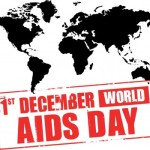Marathon Man (and Woman)

The Boston Marathon is a pretty big deal here in Boston. The city goes as far as always scheduling the event on Patriot’s Day so that many people have the day off to attend the event. As I write this, the elite runners have already crossed the finish line, but thousands are still running to make it to that point. As is frequently the case, Kenyan have taken first place in both the men’s ( Geoffrey Mutai) and women’s ( Caroline Kilel) divisions. Mutai broke a world record by :58 seconds with a total race time of 2:03:02 seconds. Americans Desiree Davila and Ryan Hall made pretty good shows, coming in at second and fourth places, respectively, in their divisions.
I can’t begin to explain why someone would willingly run 26.2 miles, but I can explain a little about what can happen to a body that runs a marathon.
Despite what you may think, the risk of sudden cardiac death during a marathon is exceedingly rare. An article in the Journal of the American College of Cardiology put the risk at only 0.002%. Potentially life-threatening conditions do exist, however, and the most common of these are frequently related to weather and hydration and include:
- Heat stroke and Hyperthermia: Heat stroke is the most serious heat-related illness. It occurs when the body becomes unable to control its temperature: the body’s temperature rises rapidly, the sweating mechanism fails, and the body is unable to cool down. Body temperature may rise to 106°F or higher within 10 to 15 minutes. Heat stroke can cause death or permanent disability if emergency treatment is not provided. For marathon runners, heat stroke may occur even in mild weather.
- Hypothermia: The risk for hypothermia is greater in cold, windy, or wet weather, but other factors may also be involved. Dampness of clothing due to sweating and or running slower in the second half of a race (generating less heat to maintain body temperature) may also cause problems. Experts recommend that you dress in layers with an outer layer that protects from wind and water which should be removed as the temperature rises. Replace or remove wet layers.
- Hyponatremia:This occurs when runners drink too much water while racing. The body loses sodium with sweating, and drinking too much water can dilute the sodium in the bloodstream. In the most extreme cases this can lead to brain swelling and other life-threatening complications. Current recommendations are that marathoners drink 13.5 to 27 fluid ounces/hour (400 to 800 milliliters).
- Dehydration: Dehydration is the most common problem in marathon runners and increases the risk of heat related illnesses. Dehydration can affect physical and mental performance, increase cardiovascular strain and decrease heat tolerance.
More common, but non-life threatening conditions include:
- Musculoskeletal problems: According to marathonandbeyond.com: It takes between 30,000 and 50,000 steps to run a marathon. Every time the foot hits the ground, a stress three to four times body weight is absorbed by the ankles, knees, hips, and lower back. This can lead to overuse and over-training injuries including:
- muscle stiffness and soreness
- pulled, torn, strained or sprained muscles
- tendinitis (inflammation in the tendons)
- shin splints (tenderness in front lower leg)
- heel spurs (calcium deposits in the heels)
- diarrhea, nausea, fatigue and mood swings
- Blisters- from ill fitting shoes or feet getting wet in puddles or rain
- Chafing from constant friction from running shorts and shirts- may be preventable by using petroleum jelly or other lubricating products on friction points.

























0 comments